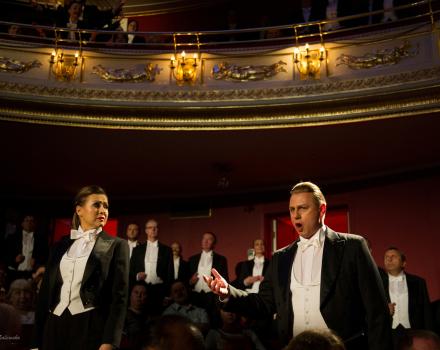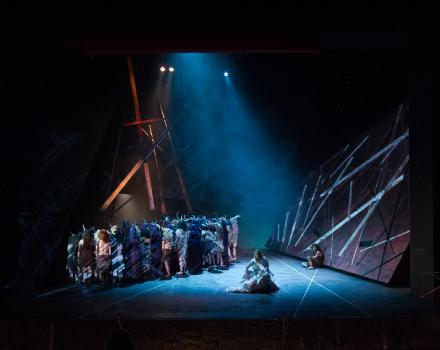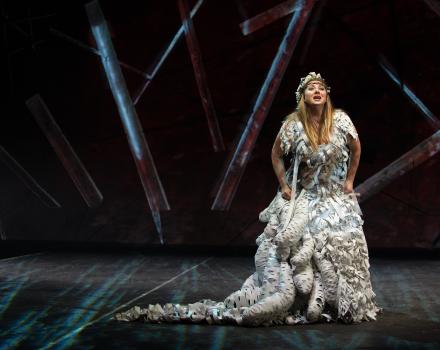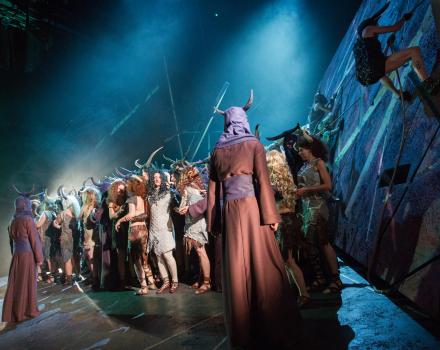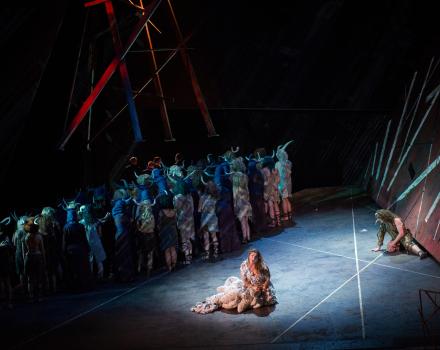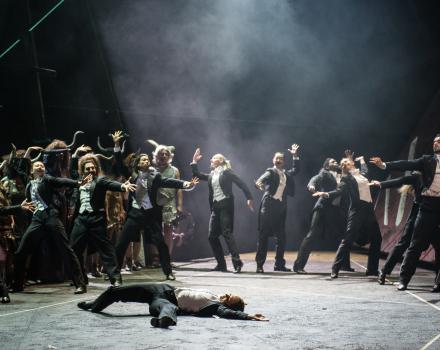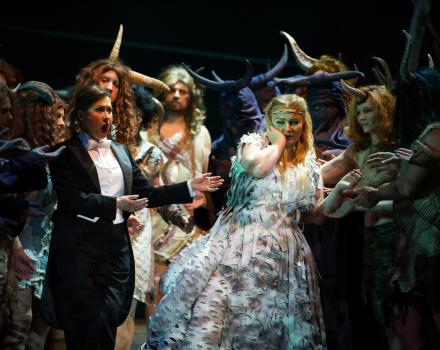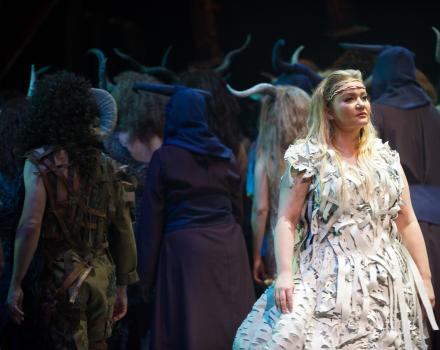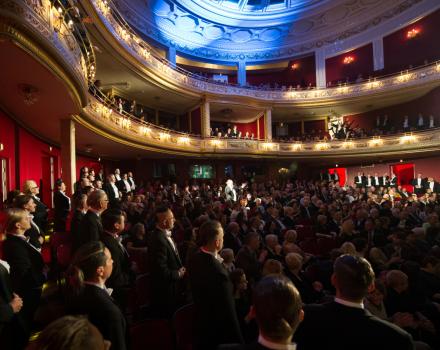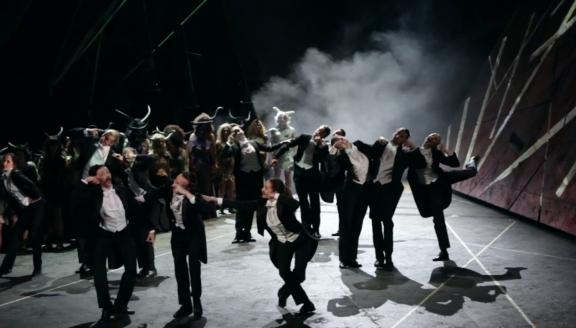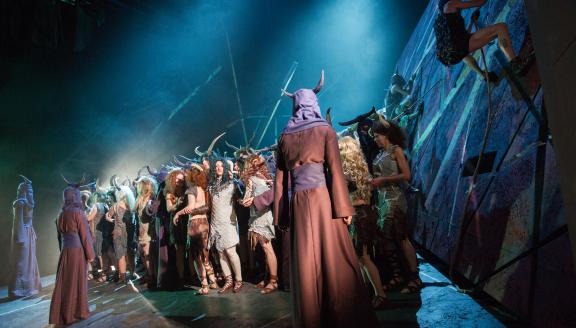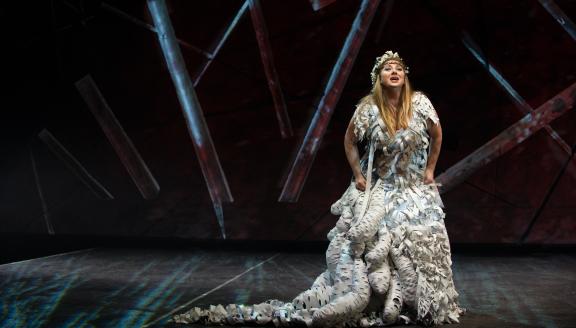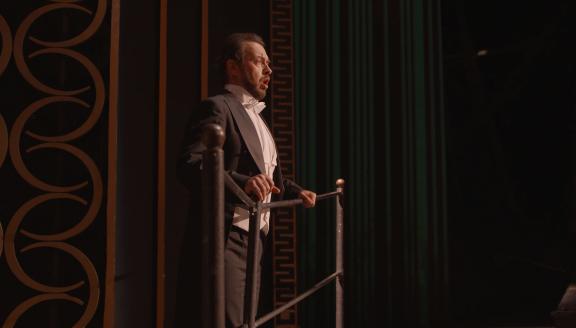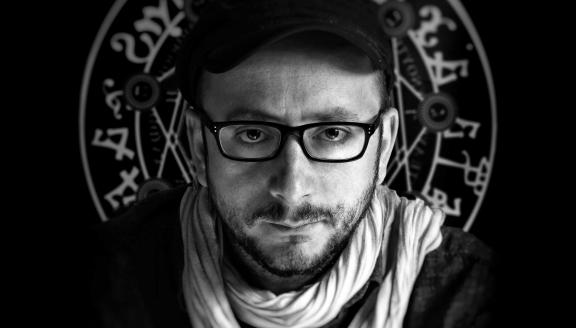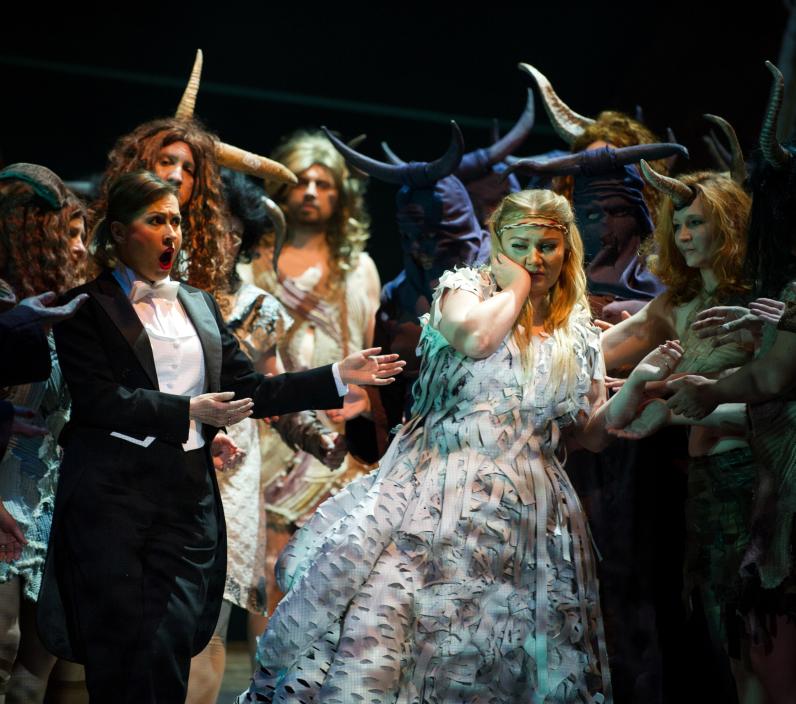

In the Polish highlands, a sensitive peasant girl has given her heart and body to a rich landowner. But now he plans to marry someone else.
Moniuszko’s romantic tragedy of mésalliance and social tension is regarded as one of the finest operas in the Polish repertoire. Poznań Opera performs their production on the giant stage of the Grand Theatre in Warsaw as guests of Polish National Opera.
Cast
|
Halka
|
Monika Mych-Nowicka
|
|---|---|
|
Jontek
|
Piotr Friebe
|
|
Janusz
|
Łukasz Goliński
|
|
Stolnik
|
Rafał Korpik
|
|
Zofia
|
Magdalena Wilczyńska-Goś
|
|
Dziemba
|
Damian Konieczek
|
|
Mountaineer
|
Bartłomiej Szczeszek
|
|
Chorus
|
Poznań Opera Chorus
|
| ... | |
|
Music
|
Stanisław Moniuszko
|
|---|---|
|
Conductor
|
Gabriel Chmura
|
|
Director
|
Paweł Passini
|
|
Sets
|
Zuzanna Srebrna
|
|
Lighting
|
Przemysław Sieraczyński
|
|
Text
|
Włodzimierz Wolski
|
|
Chorus master
|
Mariusz Otto
|
|
Video
|
Maria Porzyc
|
| ... | |
Video
The story
Act I
At an engagement party, guests raise their cups in honour of the happy couple: Janusz, a wealthy young landowner, and Zofia, the daughter of an even wealthier landowner. Halka, a simple peasant girl from one of the villages in Janusz's estate, is drawn to the party like a moth to a flame. Outside, she wails plaintively for her lost love, distracting the revellers. The kind-hearted Zofia asks Janusz to talk to the girl, hoping he will comfort her. Janusz breaks out in a cold sweat. It turns out that he is Halka’s lost love, and that he once promised to marry her but then disappeared. Away from the guests, he cradles and kisses her, and arranges to meet her in the evening.
Act II
Halka believes in the sincerity of Janusz's feelings, and is happy that she has found a young master who is not afraid of falling in love with a peasant. She is approached by Jontek, who has been in love with her for years, and who accompanied her on her trip to the town, where he watched her fatal attraction to Janusz with bitterness. He tries to make Halka understand that she is dealing with an impostor. She becomes furious, her screams and cries drawing the attention of the guests. In front of them all, Janusz denies ever knowing her and orders both visitors to leave.
Act III
In the countryside, peasants rest after a long week of hard work. Suddenly, they see a disturbing sight. Is it Jontek bringing Halka home, the girl dishevelled and with madness in her eyes. The boy explains why she has broken down and becomes increasingly exasperated by her foolish infatuation. Halka has discovered that she is pregnant and tells her story as if in a hypnotic trance: she sees herself as a dove whose wings of innocence have been broken by Janusz’s infidelity. She cannot help but weep as she sees the wedding party appears on the horizon.
Act IV
Jontek has mixed feelings about Halka. He still loves her but is horrified at how naïve she has been. Janusz and Zofia arrive with their guests and take congratulations from the peasants before heading to the village church for the wedding. Zofia notices one girl who is terribly upset and is sure that she has seen her somewhere before. Janusz admits that Halka is the person who interrupted their engagement party and that he once used her for his own entertainment. Before Zofia can ask him any more questions he whisks her into the church. Halka is heartbroken to see that Janusz is going through with the marriage. She has lost her baby and feels completely alone. In a fit of rage, she decides to burn down the church. Realising that she cannot bring herself to kill Janusz, she changes her mind and, in despair, throws herself into the river.
Insights
The birth of a national opera
Halka was a flop on its opening night in Vilnius, yet today it takes pride of place in the Polish repertoire. How did this change in fortunes come about? The music critic and radio journalist Piotr Kamiński charts the ups and downs of Stanisław Moniuszko’s first opera.
Following the publication in Vilnius of Stanisław Moniuszko’s second Songbook for Home Use in 1845, the composer went to Warsaw. There, he met a young poet and political radical called Włodzimierz Wolski, who had just finished writing a poem titled ‘Halszka’ based on Kazimierz Władysław Wójcicki’s novella Góralka (The Highland Girl). The poem was banned by the censors, but Wolski nevertheless suggested that it be reworked into a libretto. Discussions on the topic, which also involved critic Józef Sikorski and ethnographer Oskar Kolberg, gave fruit in the form of a two-act opera known today as Halka.
Sikorski spared no time in presenting the score to those in charge of the Teatr Wielki in Warsaw, headed at the time by Tomasz Nidecki, who first accepted, but then rejected it. Consequently, the work was given its debut in a concert version at the house of Moniuszko’s in-laws in Vilnius. A fully staged production premiered only six years later, on 16 February 1854, again in Vilnius.
The reactions were rather unfavourable. Halka was seen as immoral and unpatriotic. Yet Moniuszko had not wasted his efforts, for the experience had been a chance for him to test the strengths and weaknesses of his first stage work. Now, having completed two operettas, namely Cyganie and Bettly, he felt significantly more confident. What is more, he had visited Saint Petersburg, where he discussed Halka with Alexander Dargomyzhsky. The composer was enthusiastic about the piece and likely drew inspiration from it when writing his Rusalka.
In 1856, Moniuszko revisited the score, adding Jontek and Janusz’s duet and the Highland dances. Encouraged by positive feedback from the Teatr Wielki in Warsaw, which was now managed by Jan Quattrini, Moniusko made further revisions.
The new version of the work was divided into four acts. Its premiere on 1 January 1858 was a triumph, hailed as a huge artistic achievement and a patriotic event. These days, the date is considered the birthday of Polish opera. Performed 150 times during the composer’s lifetime, Halka saw over 500 performances before the end of the century. By the mid-1930s, the performance count had reached a thousand.
In 1953, towards the end of his life, the Polish theatre and film director Leon Schiller created a production of Halka in Warsaw that toured to the Berlin Staatsoper later the same year. In keeping with the strictures of socialist realism, his interpretation emphasised the element of class struggle, even altering the libretto in order to achieve this. Highly praised by many and criticised by others, Schiller famous staging became a point of reference for future productions.
In the 161 years since the triumphant first performance of the revised version of Halka, it has never left the Polish repertoire. It has been staged to mark special occasions, such as the post-war reopening of the Teatr Wielki in 1965. Though it is hardly ever shown outside of Poland, a special mention should go to the late Maria Fołtyn, one of the most prominent post-war Halkas, for her efforts in promoting Moniuszko’s great opera abroad.
Piotr Kamiński is the author of Tysiąc i jedna opera (A thousand and one operas), published by PWM Edition in 2008.
Gallery
